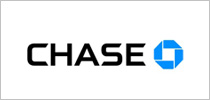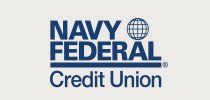Finding a great mortgage lender can go along way toward easing the stress of buying your first home.
Here’s a comparison of some the best mortgage lenders in the United States. But keep in mind, these are only a few out of hundreds. Often times, the best mortgage lender for you will be the one that can offer you the best rate based on your credit score and the home you’re buying.
Overview: Best mortgage lenders for first-time home buyers
| Lender | Min. credit score | Required down payment | Best for |
|---|---|---|---|
| Rocket Mortgage | 580 | 3% | Overall |
| Chase Mortgage | 620 | 3% | Live support |
| Navy Federal | 620 | 0% | Military personnel |
| Reali | 620 | 5% | Cash offers |
| Better | 620 | 3% | Expediency |
| Luxury Mortgage | 580 | 3.5% | Self-employed |
| Alliant Credit Union | 620 | 0% | 0% down payment |
Today’s best mortgage rates
The following lenders have chosen to share real-time mortgage rates.
Rocket Mortgage
There’s a reason you’ve seen Super Bowl commercials for Rocket Mortgage. Quicken Loans is America’s largest mortgage lender by volume, and Rocket Mortgage is their magnum opus – an incredibly streamlined, online-only loan process.
With Rocket Mortgage, you can go all the way from getting a quick prequalification to fully closing on your home entirely through the app, available on desktop, iOS, and Android.
But what truly makes Rocket Mortgage stand out is just how darn educational it is. As a first-time home buyer, there’s a 100% chance that at some point during the loan app process, you’ll be asked questions you don’t know how to answer – or for a form you don’t have. Luckily, Rocket Mortgage offers ways to learn more every step of the way, and you can always contact a Quicken loan expert for more ad hoc assistance.
Rocket Mortgage isn’t perfect – namely, its rates are good but not great (Super Bowl ads aren’t free, after all). But if you value expediency and low stress over rock-bottom rates, it’s a solid pick.
Chase Mortgage
 Chase is another low-stress destination for first-time home buyers to get a great rate on a mortgage. Unlike with Rocket Mortgage, you can’t go A to Z completely online with Chase – at some point, you’ll be connected to a live Chase rep to answer questions and wrap things up.
Chase is another low-stress destination for first-time home buyers to get a great rate on a mortgage. Unlike with Rocket Mortgage, you can’t go A to Z completely online with Chase – at some point, you’ll be connected to a live Chase rep to answer questions and wrap things up.
That being said, if you’re a first-timer, complimentary access to a live mortgage expert may actually be what you’re looking for. Plus, Chase’s team of live lenders is one of the best in the business – Chase Mortgage scores an almost unbelievable 4 out of 5 stars out of over 1,500 user ratings on Consumer Affairs.
If people take time out of their day to rave about their mortgage lender online, you know they’re the real deal.
Chase also competes on variety and price – they offer a wealth of mortgage types, terms, and impressively low rates for a big bank with high overhead. The cherry on top is their expediency guarantee – if for any reason they can’t help you close on your home in time, Chase will cut you a check for $2,500 to comp for the inconvenience.
With a compelling mix of old- and new-school lending, you can’t go wrong with Chase Mortgage.
 If you’re military-affiliated, you might be wondering if you can get an amazing deal on a mortgage just like you do on auto insurance.
If you’re military-affiliated, you might be wondering if you can get an amazing deal on a mortgage just like you do on auto insurance.
Yep!
Despite the name, Navy Federal accepts borrowers from all branches of the U.S. Military – and they have a lot to offer. For starters, they’re a non-profit credit union so their rates and fees are extremely low. And even if you do manage to find a better rate elsewhere, Navy Federal will either match it or write you a check for $1,000.
They even have a special program geared towards first-time home buyers. With HomeBuyers Choice, you can get a fixed-rate, 30-year mortgage with up to 100% financing – meaning you can make as little as a 0% down payment. The program also offers adjustable-rate loans, which can greatly reduce the stress and hassle of relocating every few years.
For a mortgage lender that offers special rates and programs to the military community, and simply understands the unique needs of the community, look no further than Navy Federal.
Reali Loans
Full disclaimer: Reali is currently only available to borrowers based in 12 states: AZ, CA, CO, FL, GA, IL, MI, OR, PA, TX, VA, and WA. But if that’s you, you’re in for a treat.
Reali is a relative newcomer in the lending space, offering good rates, low fees, and a fully-online prequalification and preapproval process. So what stands out?
Reali seems to understand better than other lenders the plight of first-time home buyers being edged out of the market by foreign investors making cash offers. Even if the seller likes you better, they’ll still be more inclined to take the cash offer from some rich California-based investor simply because it’s faster.
That’s why Reali gives us a fighting chance with the Reali Cash Offer feature. Reali will make a cash offer on your behalf, buy the house, and then you buy it back from Reali – a structure similar to a traditional mortgage, but much quicker and much more appealing to sellers.
If you live in one of the 12 states above and are fed up with losing homes to cash offers, Reali gets you back in the fight.
Better
Out of every lender on this list, I think the Better understands Millennials and Gen Z, well, better than everyone else.
They know we work weird hours, which is why their live phone support operates 24/7. They know we like getting the best possible deal, so they charge scant, low fees. They also realize how much we appreciate expedient, well-optimized technology, which is why you can get a prequalification letter in as little as three minutes.
But above all, Better understands that pretty much every Millennial and Gen Z has a unique debt/income situation. Priyanka might have high student loan debt, but also high income from her W-2. Malik might have zero debt and steady income, but a 590 credit score. Catherine has four different 1099s that might pay her $1,000 or $12,000 on a monthly basis.
All three scenarios are pretty common among the younger generations, and yet traditional banks may reject them since they don’t follow the debt-free, steady W-2 mold of previous generations. Better, however, will accept more varied debt/income/credit situations as long as you can provide reasonable proof of being able to pay your mortgage.
Luxury Mortgage
 Luxury Mortgage may sound like a lender who finances $5 million McMansions and high rises, but the reality is quite the opposite – their main focus is actually on first-time home buyers and self-employed/1099 earners (yay).
Luxury Mortgage may sound like a lender who finances $5 million McMansions and high rises, but the reality is quite the opposite – their main focus is actually on first-time home buyers and self-employed/1099 earners (yay).
For first-timers, Luxury Mortgage offers a variety of government-backed loan types to make your life easier. In addition to FHA and VA loans, Luxury offers USDA loans for homes in rural areas, HomeReady loans for low-income borrowers with OK credit, and Home Possible loans for low-income borrowers with good credit.
But perhaps Luxury Mortgage’s most compelling value proposition is its friendliness to non-W-2 earners. As mentioned, traditional banks tend to prefer W-2 earners over 1099 or self-employed – even if the latter borrower earns 3x as much. Luxury Mortgage has not one but three programs for non-W-2 earners – you can apply for a mortgage using just your bank statement, 1099, or even a list of your assets if you’re an investor with little liquidity.
By not being a stickler for high-earning W-2s, Luxury mortgage is a worthy choice for all first-timers, but especially those with alternative income sources.
Alliant Credit Union
 Many of our parents probably put down 20% on their first home, but that was a little easier when homes were $70,000. Now, with starter homes in metro areas surpassing $350,000, the traditional 20-down rule of thumb isn’t so feasible.
Many of our parents probably put down 20% on their first home, but that was a little easier when homes were $70,000. Now, with starter homes in metro areas surpassing $350,000, the traditional 20-down rule of thumb isn’t so feasible.
To attract younger borrowers, virtually all of the lenders on this list have been muscling down their minimum down payments – some as low as 3%.
But 3% of a starter home’s market value is still a lot of money – when you double it to account for closing costs and private mortgage insurance (PMI), you’re looking at $20,000 – $25,000 cash required to purchase a home valued at $350k. Considering how the average Millennial has less than $8k in savings, 3% is still out of reach.
That’s why Alliant Credit Union deserves major kudos for offering the Alliant Advantage Mortgage Program, which erases the down payment entirely for first-time home buyers with excellent credit. As a not-for-profit, Alliant also charges low rates, low fees, and even discounts closing costs for first-timers.
Factor in Alliant’s legendary customer service and you have a superb choice for first-time home buyers.
What type of mortgage lender is best?
There are three types of mortgage lenders, and the “best” is simply the one that offers you the lowest rate combined with other features you value.
- Traditional banks like Chase and Wells Fargo tend to offer the widest variety of loan types and the ability to apply in-person.
- Credit unions like Navy Federal and Alliant tend to offer low rates, low fees, and the best programs for saving money.
- Digital lenders like Rocket Mortgage and Better tend to offer the best guidance, technology, and access to customer service – sometimes even 24/7.
When it comes down to it, the lowest rate-plus-fees should be a top consideration. If one lender offers you a 0.1% lower APR but you have to apply in person, it’s worth it. 0.1% on a 30-year fixed term can represent a savings of around $3,000 to $5,000.
What’s the difference between getting prequalified and preapproved for a mortgage?
One of the more crucial, yet confusing aspects of the mortgage application process is the difference between prequalification and preapproval.
Prequalification is when you give a lender some basic information (contact info, finances, income, debts, credit score, etc.), and they give you a rough estimate of how much they might be willing to loan you. Prequalification can take as little as three minutes and just gives you an idea of your buying power – not much else.
Preapproval involves handing over much more of your financial history, and allowing your lender to make a hard credit pull. In order to receive a preapproval letter, you’ll need to make an offer on a home. The preapproval app may take 30 to 90 minutes, and you can receive your letter within 2-3 days.
What programs are available for first-time home buyers?
There are dozens, if not hundreds of programs available to help first-time home buyers save time, stress, and money.
First-timers can find assistance programs at three levels:
- Federal – The Federal Housing Administration offers some assistance to first-time home buyers in the form of FHA loans. These are loans you apply for through your lender, but are insured by the federal government so the rates are lower. FHA-backed loans may make sense if you have a low credit score or are looking to make a low down payment, but be sure to counsel your lender for the best option to fit your unique situation, as FHA loans can be much more expensive than a conventional mortgage.
- State – You may also qualify for a state-specific program like Georgia Dream, which provides down payment loans to lower-income borrowers, PEN (Protectors, Educators, and Nurses), and families with a member living with a disability. To find out, try Googling “[your state] first-time home buyer program.”
- Lender – Lender-specific programs tend to be the most attractive overall, since they’re coming from private institutions competing for your business. The Alliant Advantage Mortgage Program (AAMP), for example, offers a 0% down payment and discounts your closing costs.
To be clear, you can still get a great deal on a mortgage without leveraging one of these programs. They’re more geared towards providing assistance than providing a discount, if that makes sense. At the end of the day, the most important number is your rate plus closing costs.
Which mortgage is the easiest for first-time home buyers to get?
The easiest mortgage to get depends on which hurdle of the process you’re struggling to overcome.
If you’re feeling stressed out or overwhelmed, Rocket Mortgage, Chase, and Better have the most streamlined and helpful workflows.
If you have erratic or non-traditional income, Better and Luxury Mortgage will be more likely to pre-approve you than other banks.
Finally, if you’re struggling because you have low credit, well, I strongly recommend you follow our step-by-step guide to improving your score first. Reaching a minimum threshold of 620 vastly opens up your options and saves you thousands in interest. But if you’re in a hurry, Rocket Mortgage accepts scores as low as 580.
Most important features of mortgages for first-time home buyers
As a first-time home buyer, what kinds of things should you look for in a mortgage lender?
Low-stress process
Applying for a mortgage can be stressful, so you’ll want to find a lender who’s made an effort to streamline their process (this is also a sign that they care about their customers and are up with the times).
Expediency
You’ll also want to work with a lender who’s able to prequalify, preapprove, and close on your home quickly. Unnecessary delays could quite literally cost you your home!
Low rates and fees
Naturally, nothing is as important as getting a good rate. The only way to know you’ve gotten a good rate is to shop around, so take your time and don’t take the first offer you receive, even if it sounds low.
Specialized programs for first-time buyers
Finally, it’s worth determining whether a lender has any special programs for first-timers. Sometimes, a lender will just try to provide the best possible rates to everyone – and that’s OK and shouldn’t disqualify them from your search.
Summary
Buying a home for the first time can certainly feel daunting, but getting preapproved by the right lender for the right rate can take a tremendous amount of stress off your plate.
As a next step, check out How Much House Can You Afford?, where we’ll explain the Rule of 28 and give you other pro tips for moving fast and saving $1,000s.